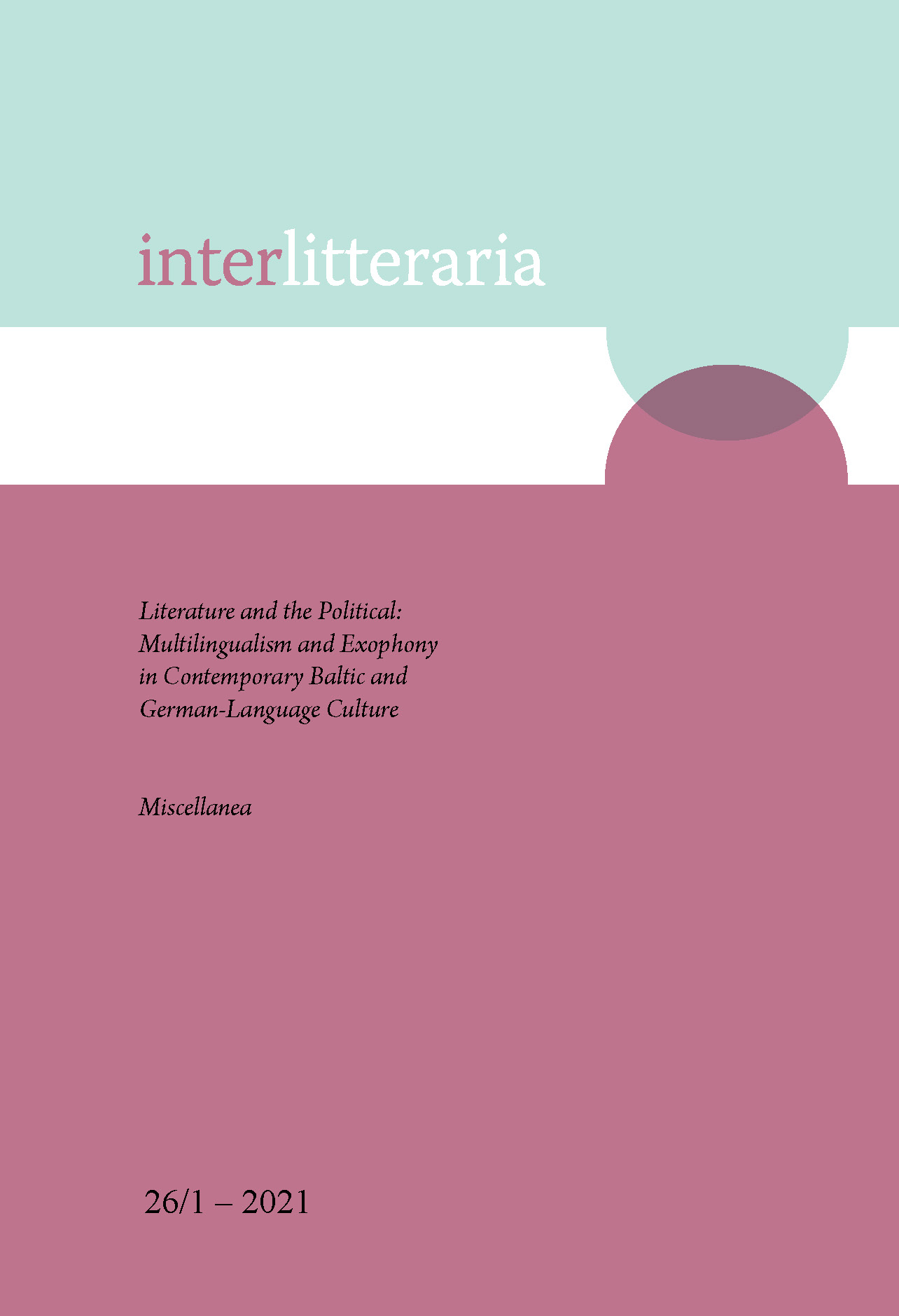Post-modern-east ou comment peut-on être « post-moderniste sans post-modernité » et sans Lyotard ?
DOI:
https://doi.org/10.12697/IL.2021.26.1.22Keywords:
Postmodernism, Postmodernity, Jean-François Lyotard, content/form, Eastern Europe, Mircea MartinAbstract
The Post-Modern East, or How Can We Be ‘Post-Modern without Postmodernity’ and without Lyotard? Despite the idea of the universality of ‘postmodernism’ as a new stage in the Western World, it is now clear that the term was coined, launched, adopted or rejected differently in different places, along local historical lines. Hence, we have not only an American and a European postmodernism, but also an East European postmodernism, what we shall call the Post-Modern East. We delineate its characteristics based on a survey that looked at how East European cultures adopted and discussed postmodernism around the moment that their socialist regimes were collapsing. We focus the analysis on a particular but synthetising version of the ‘postmodern’, specifically that of Lyotard. We hold that Lyotard is one of the few intellectuals who succeeded in thinking of politics, sociology, epistemology and aesthetics as tying together to form ‘postmodernity’; and that a few European intellectuals were ready to think of ‘postmodernity’ an epistemic challenge, beyond the distinction between soft and hard sciences. A fortiori, Eastern European cultures seized ‘postmodernism’ as an American fetish and identified the breakdown of totalitarianism as the achievement of happy ‘postmodernisation’. Thirty years later, these countries have realised that by embracing a certain version of ‘postmodern’, as they had done by the end of the 1980s, was generally a mimetic utopian gesture that needs revaluation.
Downloads
Downloads
Published
Issue
Section
License
The contents of Interlitteraria are published under CC BY-NC-ND licence.


